Visit our showcase of solar and low impact cooking at the Green Gathering, Chepstow, UK 3-6th August 2017
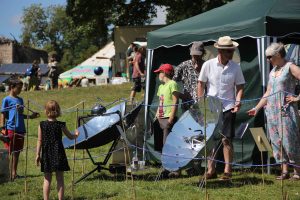
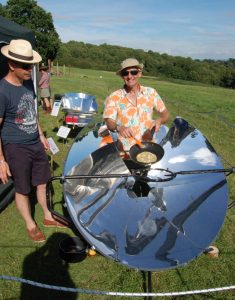
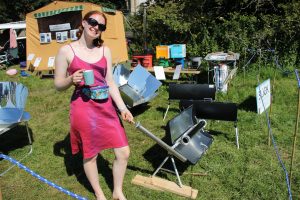
Donate. Paypal ecozoom.uk @ btinternet.com




Donate. Paypal ecozoom.uk @ btinternet.com
Biomass alongside wood and charcoal is a fuel option for the Zoom Versa named for its versatile performance. In reality biomass includes a wide range of materials that can be burnt to cook food. Of the 3 billion people without access to modern fuels maybe 60% use biomass to cook and these people exist at the poorer end of that spectrum.
Biomass itself is often gathered from local environments thus depriving the area of organic compost.

In turn this can contribute to soil loss, erosion and poor harvests.
Ecozoom rocket stoves are fuel efficient cookstoves that can give fuel savings of 60% over a regular three stone or unimproved fire. Smoke emissions can be down 70% – reducing indoor air pollution and preventing respiratory health problems. These savings can make a big difference since family members can spend less time gathering biomass. The children who often carry out this activity might spend more time at their studies, or be exposed to less danger from wild animals or slavers.
Out here in the UK things are a bit different and Zoom stove users mainly burn wood and charcoal when camping out or for real fire cooking on the patio at home. We wanted to see for ourselves how a Zoom Versa handled biomass so we set up a mini science study last weekend for a try out.
In the line of fire were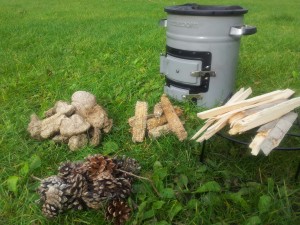 three types of biomass: pine cones; corn husks and dry animal droppings.
three types of biomass: pine cones; corn husks and dry animal droppings.
OK I was a little apprehensive about the third, but as a fuel its the real deal for developing world cooks. This was from wild Exmoor ponies, with no odour and basically just straw, so gourmet biomass, so to speak.
A hot fire is the key to rocket stove efficiency – trapping and burning up the smoke before it gets in your eyes. Having set up our test stove at a local park barbecue spot we warmed up the combustion chamber using wood.
Then we tried each fuel in turn timing how long it took to boil one litre of water.
Its not easy cooking in a UK bbq area, people use throwaway barbecues full of accelerants and strange chemicals – they really stink and seriously undercook food. We’re in the clean burning and natural camp, and smoked nobody out. We kept a good fire going, and here are the results from our test:
Pine Cones – these burn for ages, and really well. The scent is pleasant. 1 Litre water to boil: 6:55 mins
Exmoor Pony (& Trap) – burns with fury but doesn’t last long. no odour. 1 Litre water to boil: 7.30 mins
Corn Husks – Burn slow, didn’t really work to boil the water fast. 1 Litre water to boil: 8:20 mins
The cookstove gobbled up the fuel and there was very little ash left in the stove, its clear that biomass is a serious option for a Zoom Versa rocket stove and a fun experience.
It was a pleasure learning about these fuel types and we got an idea of how people in the developing world might be cooking right now. We didn’t check how these fuels might work in an open fire as this would be too smoky – even for a London barbecue place. I’ll be collecting pine cones for this purpose in future; corn husks – why not?; pony power?….. lets face it, you can efficiently burn any dry biomass in a Zoom Versa. Unlike bottled gas or smokey barbies, your fuel is abundant and its everywhere.
Author Stewart MacLachlan EcoZoom UK
Note: We didn’t use the Power Ring – the times would be reduced up to 25% if we had.
The Isle of Skye is the jewel in Scotlands crown with some world class mountain backdrops.
With this in mind we packed an EcoZoom Dura to support an attempt on the infamous Skye Ridge Traverse.
This is a two day, sustained high level scramble with much climbing, and lightweight mountain equipment is required. Lets be clear, the ridge is no place for a wood burner – there’s no wood or water up there for a start. It was down at the base camp harbour where our EcoZoom Dura came in really useful.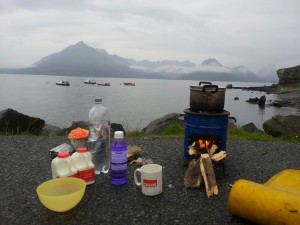
Wood is often in short supply on the treeless Scottish peat bog, but this no problem for a zoom stove as you don’t need much. The Dura was used for hours and rocked out some great cooked breakfasts, including porridge. It was essential to pack in the carbs as calories would be limited on the climb. Buckets of tea were happily imbibed by all comers and as usual the stove worked as a focus and centre of attention – burning through all the pesky paper wrappers to avoid leaving pointless litter.
But the stove came into its own in a particularly Scottish way and any summer visitor to these parts knows about the Highland Midge
The Scottish Midge casts a long shadow over the Scottish tourist industry. Known as the ‘crofters revenge’ since crofters were cleared from the land for sheep leaving it un-drained and boggy. Perfect breeding ground for insects and the midges come in biting swarms that blacken the sky. They are attracted to the CO2 in our breath, so there’s no escape
EcoZoom cookstoves burn dry wood very efficiently with up to 70% less smoke, since it gets mixed with the flame and re-burnt due to the rocket effect. This gives a 60% reduction in the fuel used to cook food.
But with a little clever ‘reverse-engineering’ (i.e. damp wood) it was possible to smoke them little critters out and chase them off down the glen. It worked a treat when required and allowed for a bit more peace and reflection prior to the challenges ahead. And what a view!
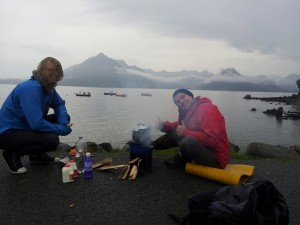
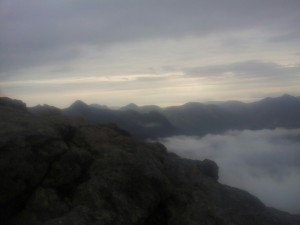
Two days later we emerged from the mountains having had great weather and the best experience, grateful for all the support we had to complete this lofty Scottish classic and in need of some celebratory local malt.
It was great to get the opportunity to test the stove out as a base camp facility here and I can fully recommend an EcoZoom rocket stove for use in the Highlands – for both food and also to keep troublesome midges at bay without the hassle of a regular campfire.
Ecozoom Dura rocket cookstoves are simple, durable and burn wood for fuel, they are soon to be available in the UK.
How to traverse the Skye Ridge
Photos and story by: Stewart MacLachlan, EcoZoom UK
ECOZOOM HIGH EFFICIENCY WOOD, BIOMASS OR CHARCOAL ROCKET COOKSTOVES
DEPLOYED AT ANTIFRACKING PROTEST SITES
April – Anti Fracking : This is about long term sustainability
Anti-Fracking protesters at the Daneshill (Nottingham) and Upton (Chester) Anti-Fracking sites have deployed clean burning and efficient ECOZOOM UK rocket cookstoves for fossil fuel free cooking on site and to keep gas bottles out. John Oulton of Chester Green Party donated an Ecozoom ‘La Mera Mera’ cookstove (pictured) to the Upton site, recently covered by the BBC. John said that it made no sense to be making tea for visitors and journalists using bottled methane gas at an anti-fracking protest site. Ease of use of the ECOZOOM UK high efficiency wood, charcoal and biomass cookstoves, and their low emissions have made them a clear choice for site welfare. The cookstoves quickly became the focus for the sites with visitors able to learn about alternatives to gas use for cooking.
To avoid using fossil fuels and un-renewable power sources we must show alternative options. Ecozoom rocket stoves provide options and lead the way for efficient use of renewable fuels. They are used across the world where fuel sources are limited and can easily cope with fuel supply disruptions to keep you cooking.
ECOZOOM UK COOKSTOVES ARE CONFRONTING BOTTLED METHANE GAS USE
– FOR SPORT, RECREATION, PATIO COOKING & CAMPING.
http://www.daneshill.org DANESHILL
https://www.facebook.com/groups/1394777480782876/ FRACK FREE UPTON
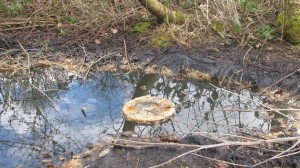
DEPLETED ORPHAN FRACKING GAS WELL WARNING
http://www.bbc.co.uk/news/science-environment-26692050